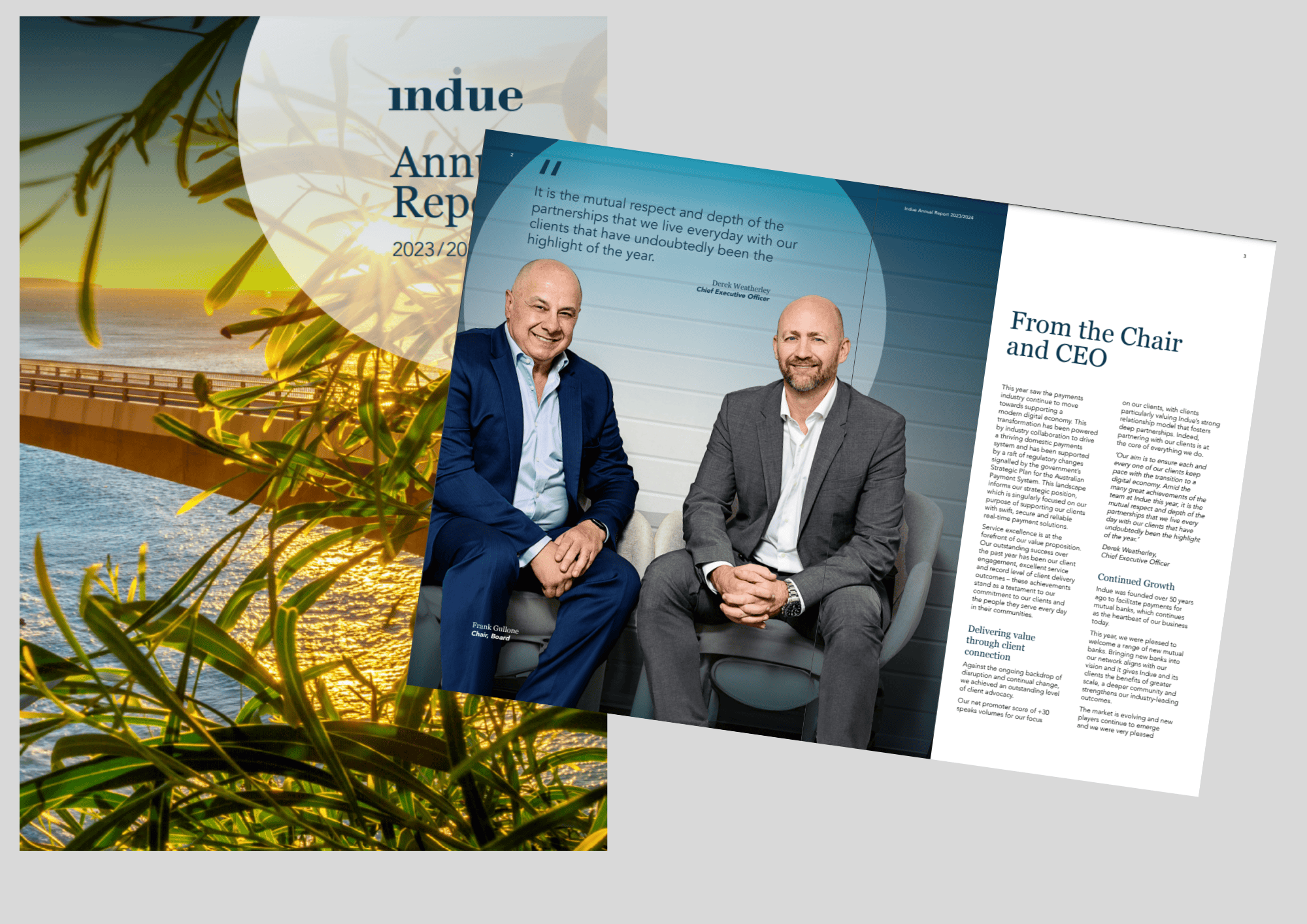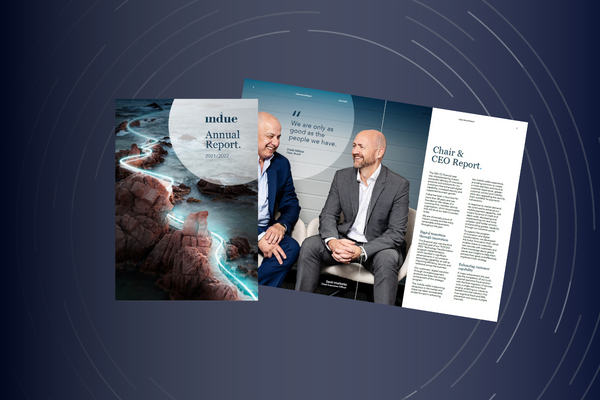News
News

World Payments Report 2025 – CapGemini
The global payments industry is undergoing a seismic shift as consumers increasingly adopt digital transactions over cash. Supportive regulations and innovative industry initiatives, especially open finance and instant payments, are both playing key roles in this transformation.
The World Payments Report 2025, the 20th anniversary edition of this report, reflects the views of 600 corporate treasurers from across three industries: insurance, retail, and automotive. It also includes payments insights from focused interviews and surveys with over 200 senior payment executives of leading banks (Tier I and Tier II), financial service organisations, payment service providers, industry associations, and central banks representing all regions of the globe – the Americas, Europe, and Asia-Pacific/Middle East. Key findings include:
- Banks need to adopt a multi-rail payments approach, protecting existing global payments revenue streams while exploring innovative instant payment services enabled by open finance.
- Current corporate transaction banking and corporate cash management services fall short of expectations: PSPs should work toward real-time payment solutions and real-time cash visibility and helping drive operational efficiency.
- Stop-gap tactical adjustments must give way to larger strategic shifts aimed at maintaining competitiveness and driving profitable long-term growth in the future of payments.
Gear up for the instant payments revolution.
The report offers insights and strategies to help banks and other payment services providers meet and exceed customer expectations and grow profitability during this transformative period for the industry:
- Embrace both open finance and instant payments while driving synergies – building the business case to fund needed investments.
- Agility is paramount, and cloud-based, composable platforms offer transformation flexibility and scalability.
- Develop innovative and adaptive cross-product, multi-rail value propositions that deliver a superior experience for customers.
Source:
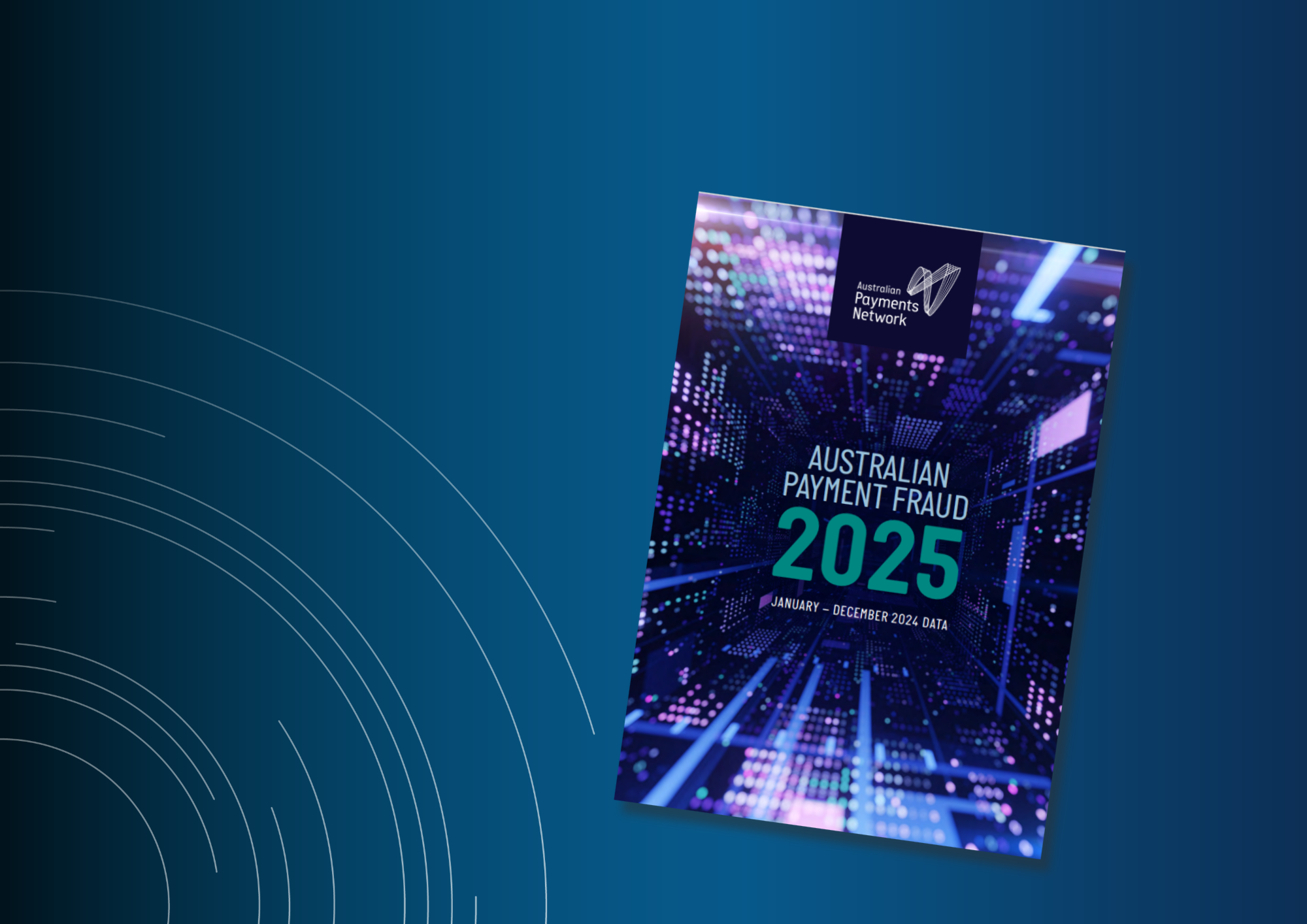
Australian Payment Fraud 2025 Report
According to the 2025 Australian Payment Fraud Report, the total value of card fraud on Australian-issued cards increased by 20 per cent to $913 million in 2024, driven by an increase in overseas card-not-present (CNP) fraud.
Overall, there was a 12 per cent year-on-year increase in the overall payment card fraud rate, from 70.2 cents per $1,000 spent in 2023 to 78.8 cents in 2024, also driven by the increase in overseas CNP fraud.
Overseas CNP fraud increased by 25 per cent to $454 million in 2024 and occurred at a rate of $12.08 for every $1,000 spent. This rate of growth was well above the 15 per cent increase in spending overseas in the same period.
In contrast, domestic CNP fraud increased by 11 per cent to $362 million, but this rate was slower than the 21 per cent increase in domestic card spending. The domestic CNP fraud rate declined to a record low of 97 cents per $1,000 spent in 2024.
While only 3 per cent of the total card spend last year involved Australian cards used overseas, overseas CNP fraud accounted for 50 per cent of all card fraud and occurred at a rate more than 12 times that for the domestic equivalent.
For more information on the data and payment fraud trends, read the 2025 Australian Payment Fraud Report and the accompanying media release.
- Card-not-present (CNP) fraud increased by 19 per cent to $816 million
- Fraud on lost and stolen cards increased by 31 per cent to $68 million
- Counterfeit/skimming fraud decreased by 20 per cent to $6.2 million
- Cheque fraud decreased by 44 per cent to $2.7 million
Source auspaynet.com.au

Australian banks launch new defence in battle against scammers
Australian banks have today unveiled their latest scam fighting technology, with the launch of Confirmation of Payee – a new name-matching service designed to help protect customers from being tricked into sending money to criminals.
Banks have invested $100 million in this new technology which is a key initiative of the sector’s Scam-Safe Accord – a set of world-leading safeguards by banks to help keep the money of Australians safe.
Adrian Lovney, Chief Payments and Schemes Officer at Australian Payments Plus (AP+), which developed the service, said Confirmation of Payee helps reduce scams and mistaken payments by checking whether the name, BSB and account number entered by a customer match the account details held by the receiving bank and showing the match result before payment is made.
“Confirmation of Payee is all about giving customers greater control and confidence when making payments,” Mr Lovney said.
“It’s a simple concept, but it adds a powerful extra layer of protection for everyday transactions.”
Australian Banking Association CEO Anna Bligh said while Australia was one of the only countries in the world where scam losses were reducing, investing further in the latest scam fighting technology was crucial to driving losses down even further.
“This is critical new technology that will help protect a customer from transferring money straight into the hands of a scammer.”
“It is a new weapon that banks will have at their disposal to better shield customers from losing money to scams.
“When the rollout is complete, Australia will be one of only a handful of countries to have this technology in place across the entire banking sector, ensuring customers are protected regardless of who they bank with. It is further proof that Australian banks are leading the way when it comes to protecting customers from scams.”
NAB Executive, Group Investigations Chris Sheehan said scammers were ruthless and sophisticated transnational criminals always looking for new ways to rip people off.
“Technology enables these criminals who can move incredibly quickly. Confirmation of Payee is another example of the banking industry collaborating to disrupt the scam ecosystem and protect customers,” Mr Sheehan, a former Australian Federal Police executive, said.
“We need all parts of the ecosystem focused on prevention to help stop the crime and drive these criminals out of Australia.”
Customer Owned Banking Association Chair Elizabeth Crouch AM said the new Confirmation of Payee service is a big leap forward in customer protection.
“Australia’s mutual banks are working hard to protect their customers’ money and the new Confirmation of Payee service is a big leap forward.”
“Developed as part of the banking sector’s Scam-Safe Accord, this crucial name-matching solution is being rolled out by all banks to deliver stronger safeguards against scams.”
“Customer-owned banks put their customers first and are committed to doing everything they can to deliver effective fraud and scam protections that work for their customers and communities.”
How it works
The new Confirmation of Payee service activates when a customer makes a first-time payment using a BSB and account number. After entering the account name and payment details, and before making a payment, a matching service checks whether the information matches the recipient’s bank data.
- If the details match, the account name will be displayed for confirmation.
- If there’s a close match (e.g. “John Smyth” instead of “John Smith”), the customer will see the account name and can confirm if it’s correct.
- For individual accounts with no match, the customer will be shown a warning, and the account name won’t be shown to help protect privacy.
- For business and government accounts, the account name may still be shown.
Using that information, the customer can then decide if they want to go ahead and make the payment, pause and check the details again, or stop the payment altogether.
A national awareness campaign will also start today under the tag line “Check the name. Spot the scam” to educate customers about this new technology.
Source: AP+ Australian banks launch new defence in battle against scammers – Australian Payments Plus

How the Scam-Safe Accord is Making Banking Safer for Australians
With digital scams on the rise, Australians are demanding stronger protections for their finances. The Scam-Safe Accord, launched in late 2023, is a powerful new framework uniting major banks, regulators, and consumer advocates to tackle scams head-on and make banking safer than ever before.
What Is the Scam-Safe Accord?
The Scam-Safe Accord is a national agreement among all major Australian banks and financial institutions to implement tougher, smarter, and more coordinated anti-scam measures. Developed in partnership with the Australian Banking Association and government bodies, the Accord sets clear standards for scam prevention, detection, and rapid response—moving banks from isolated efforts to a united, sector-wide front.
What’s Changing Under the Accord?
Key initiatives include:
- Biometric ID checks for opening new online accounts, making it harder for scammers to impersonate others.
- Confirmation of Payee systems: A $100 million investment is delivering industry-wide technology to verify account names before payments go through, helping to stop misdirected or fraudulent transfers.
- Mandatory payment warnings and delays when a transaction looks risky, so customers get a second chance to spot scams.
- Sector-wide intelligence sharing so banks can learn from each other and quickly block emerging scam tactics.
- Limits on payments to high-risk channels—if a platform is linked to high scam rates, your bank may add extra safeguards or restrictions.
- Comprehensive consumer education and awareness campaigns to help Australians spot and avoid scams on their own.
Already, these actions are reducing scam losses: Some banks have prevented or recovered over $200 million in scam-related losses since 2022.
Different Perspectives
The Accord has been widely welcomed for raising the bar on security, but some warn that technology alone isn’t enough—ongoing consumer education and inclusion for older or rural Australians remain essential. There may also be rare cases where extra checks delay genuine payments, but most agree it’s a small price for greater security.
References
- Australian Banking Association – Scam-Safe Accord Announcement
- Corbado: Australia’s Scam Safe Accord – Key Measures & Impact
- Customer Owned Banking Association – Scam-Safe Accord One Year On
- ThreatMark – Scam-Safe Accord Compliance for Australian Banks
- FrankieOne – Scam Safe Accord: Big Banks Take Action

How Confirmation Of Payee Is Putting The Brakes On Scams
Scams are costing Australians billions each year and the pressure is mounting on banks and mutuals to continuously step up their defences. That’s the goal of the 2024 Scam-Safe Accord, a new industry framework led by the Australian Banking Association (ABA) to reduce scam losses and improve customer protection.
A key ABA recommendation is the introduction of Confirmation of Payee (CoP) – an industry-wide service initiative of Australian Payments Plus that matches the bank account details entered by a payer with the account details held by the recipient’s bank and displays a match outcome to the payer.
Data from the 2024 Mapping Social Cohesion Report shows nearly half of Australians believe most people can be trusted which suggests they may not instinctively have fraud or scams front of mind . CoP creates a pause in the payments process, alerting customers before money moves and helping to safeguard people and businesses from fraud, scams and mistaken payments.
Indue is enabling clients to adopt CoP and strengthen payment security across the board. So how effective is it? And what role does it play in the evolving payments landscape?
We spoke with Indue’s Head of Innovation & Strategic Initiatives, Jenny Osborne to find out.
Why is CoP such a significant step forward for payment security in Australia?
Scammers often rely on urgency and quick decisions to trick people, so CoP creates a pause in the digital payments process to encourage people to stop and think, before they are caught off guard.
It puts customers in the driver’s seat, helping them make more informed choices before the transaction is complete and it may be too late. It also offers confirmation to ease doubts when something doesn’t add up.
Tools like CoP provide an important extra layer of defence for Australians to reduce both scams and mistaken payments.
What does CoP mean for Indue customers?
Under the 2024 Scam-Safe Accord, CoP is set to become an industry-wide standard. For our customers, adopting this technology is about more than compliance; it’s about keeping pace with the latest trends and maintaining parity with the bigger banks.
Scammers are quick to identify gaps in the system and banks that don’t adopt this safeguard may be seen as easy targets.
That’s a real challenge for our clients and we’re working closely with them to make sure they’re protected and prepared.
What does experience with CoP-style technology overseas tell us? And what should Australians be looking out for?
Versions of CoP exist globally across the EU, UK, New Zealand and other countries globally.
One of the most significant changes overseas has been liability. Last year, newly introduced rules from UK Payment Systems Regulator mean both the payer bank and the payee bank now share responsibility if someone is scammed . It’s a strong signal that regulators expect more from financial institutions – and it’s a trend Australia needs to be ready for.
Where does CoP fit in the broader push for safer digital payments? And what’s next?
Scams and fraud have been steadily rising in recent years and CoP is just one of many tools needed to respond.
Scammers often have more time and fewer rules than the organisations trying to stop them, which makes coordinated action across businesses and industries even more important. No one tool will be the saving grace but what’s needed is a combination of tools, regulation and education.
We’re already seeing more obligations passed down through the Treasury, Australian Banking Association and Customer Owned Banking Association, and that pressure is only going to increase.
Payment security is no longer optional but a shared responsibility across our entire digital ecosystem.

Capgemini World Banking Report 25
Capgemini World Banking Report 25
In today’s fast-paced banking landscape, only banks that embrace digital innovation and offer their customers seamless, personalised experiences catering to their unique needs can survive. Propelled by digital banking, artificial intelligence, advanced analytics and more, this shift is redefining how banking offers and services are delivered – perhaps nowhere more so than in the world of bank cards.
Capgemini’s World Retail Banking Report 2025 invites traditional banks to:
- Deliver tech-forward, convenience-focused card services and offers to attract the lucrative urban, digital-first demographic
- Embrace the flywheel model to engage new customers, foster continuous growth, and build lasting relationship momentum
- Provide individualised solutions to create unforgettable customer journeys that fuel long-term loyalty
- Strengthen customer connections by integrating experiences beyond banking solutions.
Key findings:
83% |
| of retail banking CXOs cite intense competition from other card providers |
26% |
| of customers are satisfied with their current bank card experiences |
Create a continuous growth loop by offering differentiated benefits, delivering omnichannel experiences, and nurturing advocacy – is your organisation ready?
Source: Capgemini 2025
World Retail Banking Report 2025 | Intelligent Banking I Capgemini
About Capgemini: Capgemini SE is a prominent French multinational company specialising in information technology services, consulting, digital transformation, and outsourcing, with its headquarters in Paris. It employs over 340,000 people worldwide, operating in more than 50 countries, making it one of the largest firms in the industry. Capgemini collaborates with businesses to transform and manage their operations through the use of technology, engineering, and data. The company includes several specialised brands, such as Capgemini Invent, which focuses on digital innovation and strategy, Capgemini Engineering for research and development and smart products, and Sogeti for local technology services. Recent significant acquisitions have bolstered its capabilities in cloud, data, and business process services. Under the leadership of CEO Aiman Ezzat, Capgemini is committed to innovation, sustainability, and improving customer experiences, assisting clients in driving operational efficiency, embracing emerging technology trends, and achieving comprehensive business transformation.

Indue Launches ScamHub
With more than $2.74 billion lost by Australians to scams this year, market-leading payment solutions provider, Indue, has launched ScamHub — a complimentary customer website portal providing educational resources for their clients to help educate their employee and customers on scams.
The initiative was made possible through Indue’s Illumin8 Social Impact program, a program dedicated to fostering positive social impact by actively supporting social causes close to the hearts of their clients and the work they do in their communities.
Indue Chief Executive Officer, Derek Weatherley, recognised ScamHub as an important resource for connecting clients with education and information regarding scams they can share with their staff and customers, giving Australians the confidence to pay every day.
“Scams are becoming increasingly sophisticated and innovative with new scam vectors constantly entering the market,” Mr Weatherley said.
“We see it as our role and responsibility to help protect our clients and their customers — everyday Australians — from scams, tackling the issue from as many angles as possible. Providing education and resources through ScamHub is one important way we can do this.
“By providing access to the latest tools and information on a user-friendly platform, we’re strengthening the collective effort to protect Australians from financial crime,” he said.
A range of resources and materials are available exclusively to Indue clients via ScamHub including posters, social media assets and educational videos on the latest scams.
Indue clients can download resources from ScamHub free of charge, for sharing internally with staff, as well as with their customers via their own channels.
“It was important to us that we provide ScamHub to our clients as a complimentary service — we see it as an extension of what we stand for as an organisation that operates in the payment solutions space,” Mr Weatherley said.
“We know scams and financial crime are big issues for all Australians, which is why we chose to actively invest in furthering financial education, working closely with our clients in doing so.
“We are committed to seeing as many of our clients as possible making use of these resources. We will continue our collaboration with them to ensure we are delivery what they and their team need to meet the market needs.”
ScamHub will be regularly updated with new materials and resources to stay ahead of emerging scams.
ScamHub is a password protected website, available free to all Indue clients and provides easy-to-use resources that can be shared internally or externally to help prevent scams.
ENDS
Media contact: Clare Mitchell
Phone: 0429 889 556
Email: [email protected]
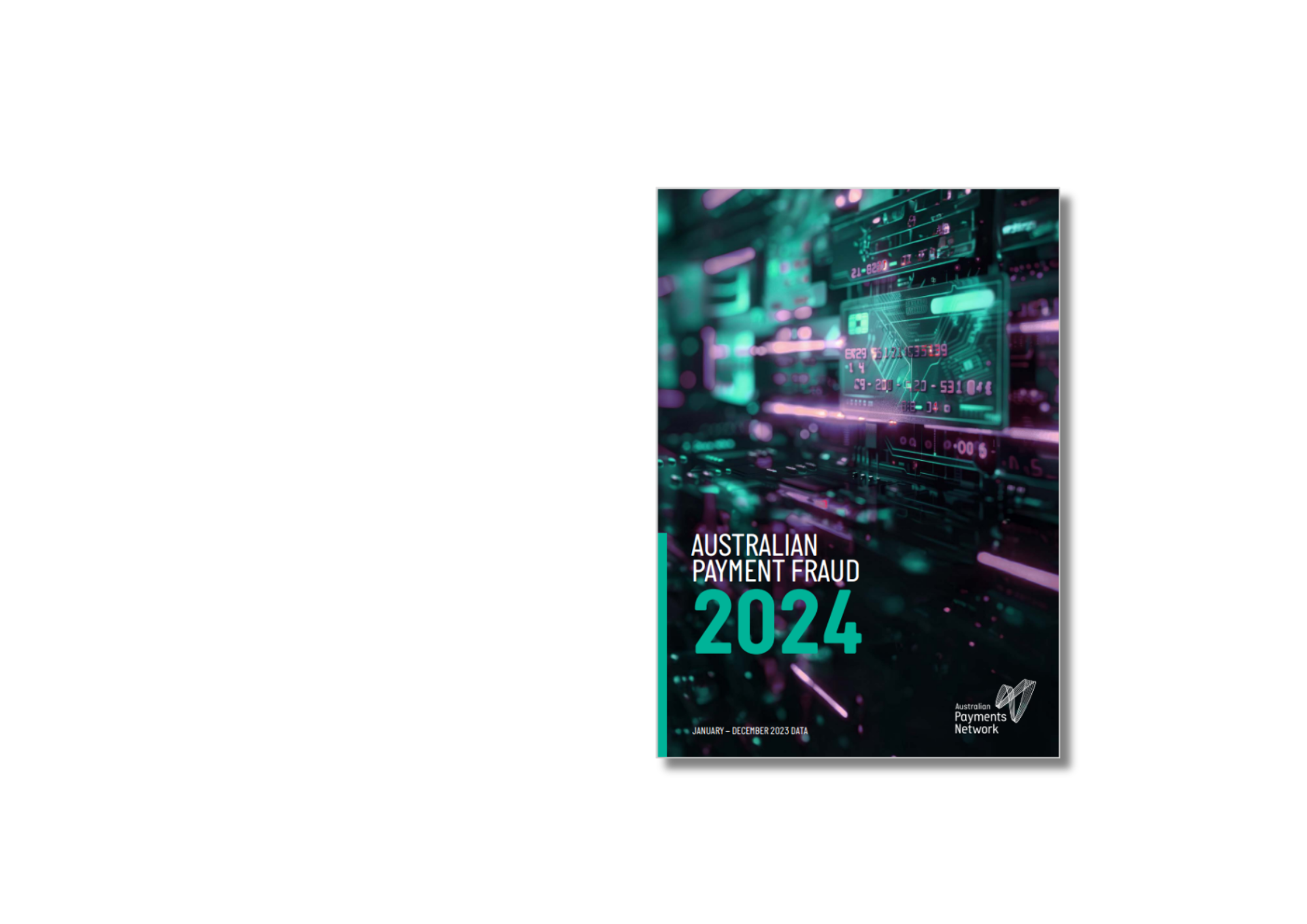
Australian Payment Fraud 2024 Report
Featuring data and payments fraud trends for calendar year 2023, the Australian Payment Fraud Report 2024 highlights current trends and allows us to measure the success of existing, and develop further, industry mitigants.
Key findings:
- Payment card fraud rate is up 22 per cent (70.2 cents per $1,000) in calendar year 2023 – the highest rate recorded since 2018.
- Total fraud value increased 32 per cent to $762 million. This increase outpaced the growth in the total value of card transactions, which rose by 8 per cent to $1.1 trillion.
- Card-Not-Present (CNP) fraud accounted for 90 per cent of all card fraud in Australia in 2023.
- CNP fraud grew by 33 per cent to $688 million, on total CNP spending of $320 billion, up 24 per cent on the previous year.
- For the first time since 2017, offshore CNP fraud overtook domestic CNP fraud, with losses in this category increasing by 51 per cent to $362 million. The offshore CNP fraud rate was $10.93 per $1,000 spent, over 10 times higher than the domestic rate of $1.06 per $1,000 spent (down from $1.11 in 2022).
The report also includes data on other fraud types including lost and stolen cards, counterfeit/skimming and cheque fraud.
Source auspaynet.com.au

Protecting your digital identity
During this Scams Awareness Week, we’re sharing our top tips to combat scams.
Tip: Protect your data like you protect your wallet!
Financial institutions spare no effort in combating fraud and protecting their customers from scammers, and there are thousands of people working around the clock to protect you and your money.
However, in recent years scammers have realised they are competing with advanced multimillion-dollar fraud detection controls and systems, and therefore the path of least resistance is to trick customers into helping them bypass the fraud controls that are put in place for customer protection.
The truths we must acknowledge:
1. Scammers already have some of your data
There’s an alarming amount of compromised data out there, and scammers are becoming increasingly skilled at exploiting it. The numerous Australian data breaches publicised widely are just the tip of the iceberg.
You can check how many data breaches have involved your details at this website: https://haveibeenpwned.com/
2. If you think you are too smart to be scammed, you are a great target!
Scammers, armed with your stolen data, can piece together a comprehensive profile of their targets. That seemingly innocent chat on WhatsApp or a transaction on Facebook Marketplace can be a data-mining expedition. This, in turn, can be exploited to build trust and manipulate people into compliance.
The following are some steps you can take to shield yourself from scams:
- Stay informed: Learn from the experiences of scam victims, by putting yourself in the victim’s situation and considering how the controls you have in place could have protected you in their situation.
- Limit personal information sharing: Be cautious about the amount of personal information you share on social media ,and tighten your security settings. The less scammers know about you, the harder it is for them to craft convincing scams.
- Enable Two-Factor Authentication (2FA): Whenever possible, enable 2FA for your online accounts. This adds an extra layer of security, making it significantly more difficult for scammers to gain access to your accounts.
- Have strong, unique passwords: Don’t underestimate the importance of strong, unique passwords for each of your online accounts. Consider using a reputable password manager to help you generate and store them securely.
Your data is your digital identity, and safeguarding it is vital. Scammers can use your data to gain trust, manipulate, and exploit vulnerabilities.
By taking steps to protect your data and sharing this knowledge with others, we can collectively defend against data-driven scams and build a safer digital world.

Introducing 100% recyclable debit cards
Indue client Southern Cross Credit Union (SCCU) are leading the way in adopting sustainable business practices to reduce their carbon footprint, with the upcoming release of a new card made from recycled materials.
The recycled PVC card product is made from waste derived from PVC Toys, Medical and electric plastic, and contribute to around 65% reduction in the SCCU’s card production carbon footprint, will be in the hands of their customers soon.
SCCU CEO Stuart Edwards said the key driver for adopting the use of recycled cards was feedback from customers.
“We listen to our customers, and we are going ahead with recycled cards based on customer feedback that they support SCCU’s commitment to making a positive impact for a more sustainable future,” Mr Edwards said.
“This change will see over 132kgs of plastic waste recycled into our bank cards over the next 4 years.
“At SCCU we are constantly implementing initiatives to reduce our footprint, and offering cards made from recycled materials, that can also be recycled, is another step in the right direction for SCCU as it will significantly reduce the waste and carbon emissions of our current plastic cards.
“This is another way we are adapting our operations to reduce carbon emissions and to ensure we are acting responsibly and playing our part to manage our impact on the environment.”
Indue CEO Derek Weatherley said Indue is pleased to partner with SCCU on its implementation of the recycled PVC card.
“Plastic waste is one of a myriad of sustainability challenges faced by the planet, and so it’s pleasing to see mutual banks adopting more sustainable solutions,” Mr Weatherley said.
“A range of sustainable plastic card solutions are available in the market and Indue has worked in partnership with our clients and our manufacturing partners to make these options easily adoptable by our clients and I believe we will see our clients quickly moving to these solutions as part of their sustainability programs.
“One of the elements of Indue’s community program lllumin8, is to focus on working with our partners to implement initiatives that address environmental issues to protect our planet.”
Find out more information on how Indue can help you deliver a card program to meet your business goals.

Celebrating 20 Years Stellar Years: Orion Financial Crimes.
Two decades ago, a journey began that would change the landscape of financial security. Today, we are celebrating 20 Stellar Years of Orion Financial Crimes—a journey marked by relentless dedication, innovation, and unwavering commitment.
The Origin: A Small Beginning with a Vision
Our story starts with ‘Credit Link,’ a small organisation consisting of just 30 staff members. Within its portfolio were 12 Visa Debit Card clients. However, a significant challenge arose when Visa decided to decommission its daily report of unusual transactions—an essential tool for fraud detection. This left a void that needed to be filled, and Credit Link was ready to step up to the challenge. Credit Link, now proudly known as Indue, embarked on a transformative journey by opting into First Data’s hosted PRM offering. This move was revolutionary in the world of fraud software, marking the beginning of a new era in financial security.
A Critical Decision: Developing a Service Offering
To meet the evolving needs of our clients and enhance their financial security, Indue made a critical decision. We decided to develop a service offering that would not only address the existing challenges but also set new standards in the industry.
Within the first year, our team expanded from 1 Full-Time Equivalent (FTE) to 3 FTE, allowing us to extend our service hours significantly. We went from operating on weekdays from 8 am to 4 pm to a more expansive schedule, covering hours from 7 am to 6 pm, including Saturday mornings.
The Financial Landscape: Then and Now
Looking back, it’s astonishing to see how the financial landscape has evolved over the past two decades. When we began, there were no overnight services, no real-time decline mechanisms, and no investigation case management tools. Transactions were predominantly conducted using magnetic stripe cards with signatures, and concepts like ‘chip and pin’ and ‘Visa Secure’ were yet to emerge. The primary focus of fraud prevention was on card-present scenarios, primarily
countering counterfeit activities. Today, e-commerce fraud, which now dominates the fraud landscape, was not even officially categorised.
Our Unchanging Purpose: Effective Mitigation and Exceptional Service
Throughout the challenges and transformations, our purpose remained constant—to achieve effective and efficient fraud mitigation while delivering exceptional customer service. We navigated uncharted waters, developing processes, procedures, reports, and client engagement strategies on the fly. All of these were driven by our sole aim: to enhance financial security while ensuring our clients’ competitiveness.
A Journey of Transformation and Innovation
As we celebrate 20 stellar years, we take pride in our journey of transformation, innovation, and unwavering commitment to financial security. From a small team managing a handful of clients to becoming a leading force in fraud detection and prevention, our story is one of dedication and excellence. We extend our heartfelt gratitude to our dedicated team, both long-serving members and newcomers, for their continuous efforts in driving positive change. To our clients, who have placed their trust in us for two decades, we say thank you.
Your support has been instrumental in our journey.
As we look ahead, we remain committed to advancing financial security, embracing emerging technologies, and strengthening our partnerships. Orion Financial Crimes, powered by Indue, stands as your reliable financial guardian, safeguarding your assets from harm.
Here’s to celebrating 20 Stellar Years of excellence, and to many more years of securing your financial transactions. Thank you for being part of our remarkable journey.
Find out more about our Orion Financial Crime solution.

Vii and The Card Network (TCN) launch first-to-market eftpos digital gift card solution
Indue is excited to work with Vii and The Card Network (TCN) to launch our first-to-market eftpos digital gift card solution available through Apple Pay and Google Pay.
Our digital gift card technology supports growing customer demand for highly convenient, secure and flexible mobile payment experiences, reflected in the $6 billion value of the national gift card market in 2023.
Indue Chief Executive Officer Derek Weatherley said that digital gift cards offer benefits to both merchants and consumers, and enhances the digital gifting experience.
“We are thrilled to launch our eftpos digital gift card solution, which was first to the Australian market and will allow our clients to provide tailored, personable gifting experiences for their customers,” Mr Weatherley said.
“Digital gift cards enable online and instore purchases, are more secure and support environmental sustainability by eliminating plastic production and delivery.
“As highly customisable digital products that can be issued instantly, digital gift cards are a popular payment solution – both for givers and receivers of the card, as well as merchants who can access sophisticated back-end analytics to improve user experience and distribution.
Indue’s solution is driven via an issuer managed app, which facilitates the issuance of cards to TCN and Vii and allows them to maintain settings for the card and add it directly to an OEM wallet.
Our capability enables us to provide holistic support to card issuers in progressing their digital gift card products through Apple Pay and Google Pay, and we work with our client’s app developers to deliver a tailored solution.
Find out more about how we can help you today with our range of programs.

Consumer Payment Behaviour in Australia
The results of the Reserve Bank’s 2022 Consumer Payments Survey show that consumers continue to shift from using cash to electronic payment methods – a trend that was accelerated by the COVID-19 pandemic and consumers’ preference towards using debit and credit cards and making payments online. Consumers are also increasingly using more convenient payment methods, particularly contactless card payments, by tapping their card or phone. Cards are now used for most in-person payments, even for small transactions that used to be made mostly with
cash.
Source: www.rba.gov.au

Insights from the Consumer Data Right Event Showcase
Indue’s Head of Innovation: Jenny Osborne attended the Consumer Data Right (CDR) conference featuring local and international experts, policy makers and founders who discussed the future of the CDR and showcased some exciting emerging use cases. There were ‘use case showcase‘ pitch-style session where founders presented about the CDR powered use cases they are building and bringing to market across payments, lending, climate tech, financial management, financial literacy. Some of the key takeaways from Jenny included:
The Consumer Data Right:
- allows consumers to safely share the data that businesses hold about them
- helps consumers compare between products and services to find offers that best match their needs
- encourages competition between providers, leading to more innovative products and services.
Currently CDR rolled out to Banking and Energy sectors, with plans to move to non-bank Lenders. There have been delays announced recently to the roll out for telecommunications, insurance and superannuation, with expectations it wont be reassessed until end 2024, this recommendation is in line with the independent statutory review that occurred citing the CDR needs time to mature. This also includes the implementation of action initiation, which will require a robust framework to support implementation.
To help CDR players understand the technical requirements ACC have introduced a new consumer data right portal to guide participants through technical requirements.
Keynote address: Australia’s Consumer Data-sharing Regime – A World-Leading Sanitation System for the Digital Economy
According to Scientia Professor Ross Buckley, UNSW it would have been better for Australia to start with simpler industries like Telecommunications or Insurance instead of Banking. He believed that Banking is a complex industry due to the high level of regulation and the large number of players involved.
The implementation process has been sluggish due to some participants exhibiting real inertia and resistance. Banks are also moving at a slow pace. Historically, banks have perceived customer data as their own and have been reluctant to relinquish control. Although many citizens believe that data pertaining to them should be theirs and not belong to banks or any other entity collecting it, privacy legislation supports this notion. However, legally, data is non-rivalrous and cannot be owned by anyone. Citizens have the right to control their data but not to own it.
The CDR will mature as more industries join and collaborate. However, without a formal regulatory regime, the absence of standards makes effective data sharing challenging. Limited data sharing will always constrain the growth of the digital economy. Therefore, it is essential for a policy agency to lead the process, rather than a regulator. An adaptable, living, and responsive framework is necessary for success.
According to his belief, the most prosperous companies view CDR as a data business and subsequently transform it into credit.
Data is the new oil – Globally the top 5 global companies pre-tax profit profile has shifted from all oil to a much bigger focus on Data companies (2 oils, 3 data companies) However, in Australia the top 5 companies are the same as 40 years ago.
Platforms – are the most profitable business model on planet, platforms are enhancing customer experience.
What has saved the most lives in the world? Water and sewerage systems – what can we learn from this? Bring clean, reliable data to business and dispose of unusable data responsibly.
In the UK Action Initiation has really accelerated. Action Initiation “Write access” provides consumers with the power to instruct accredited organisations to initiate actions on their behalf (current framework, consumers can only consent to accredited entities being given access to their data in read-only form).
Action Initiation allows products to become more customised based on risk/ behaviours to enrich the data. Although Consumer Data Right (CDR) presents both risks and opportunities for businesses, it can make options and switching simpler for consumers, and therefore, reducing the likelihood of retaining customers unless businesses are highly proactive in their customer-centric product offerings.
Governments have to bring change and encourage digital identity, driving the digital economy is critical.
CDR and the future of payments
The much anticipated ‘action initiation’ under the Consumer Data Right is on the way, with legislation in Parliament and fresh funding in the recent Federal Budget.
PayTo is a payment initiation system that falls under the Consumer Data Right (CDR). Consumers can use PayTo to kickstart payments and authorize them, with a unique feature of mandates permission. This system is compatible with CDR, and PayTo has mandates that allow others to debit your account, like in the case of gym memberships. This gives consumers the advantage of viewing, cancelling, and amending payments within the app, making subscriptions more manageable. However, there are still legal issues to consider, such as contractual obligations for a 12-month gym term. PayTo was created to replace Direct Debit and speedy fund transfers, but it doesn’t cover all use cases yet. Nevertheless, CDR can fill in the gaps where PayTo falls short.
Adopting NPP and PayTo has taken banks a significant amount of time, and it’s clear that initiating action will require more urgency and support. The regulator can play a critical role in encouraging banks to adopt these systems. While banks have eventually come around and are providing quality, compliant products, it’s important for the government and states to rally the banks. There’s a lot of interest in B2B opportunities for PayTo, like engaging companies for payroll, direct debits, improved controls, automation, and real-time movement of funds. For instance, a skydiving business could benefit from PayTo by reducing the risk of not receiving payment from a travel agent. Under NPP PayTo, the payment would be initiated immediately upon receipt of the coupon, reducing the risk. There are also opportunities for increasing process efficiency by reducing steps, friction, and time.
With PayTo, transferring payments from one bank to another for bill payments will be made possible. This is due to the increasing integration of payments through open data in the CDR system. AP+ recognizes that there is no clear set of rules on where CDR and PayTo begin and end and how they can be effectively merged. During discussions, there was a common theme of overlap between NPP/PayTo, CDR, and Digital Identity and the need for standardization with the involvement of the government and other stakeholders.

Delivering NPP PayTo – Ultradata and Indue Collaboration
In the ever-evolving world of financial services, innovation driven by consumer demand and Australian-mandated obligations continue to be the driving force pushing our businesses forward.
The PayTo initiative is a key part of the New Payments Platform (NPP) that is set to modernise direct debits, provide an alternative to card payments, and give customers greater control over their payments.
The system is designed to allow customers to manage recurring payments in bank apps and pay directly via bank accounts, and is designed to reduce payment costs for retailers.
Innovative Insights | Outstanding Outcome
“We feel that there is a commitment between Indue and Ultradata to work together in a way that is genuine and positive. There are a number of projects either in place or coming up, that we are partnering with Indue for. This is the way to achieve the best results.”
David Rowe, Senior Manager of Business Solutions at Ultradata
Recently a collaborative effort between Ultradata and Indue was taken to start the journey of delivering the PayTo gateway to Indue’s NPP participating client base.
The key deliverables for the project were:
- Meeting the NPP mandate.
- Creating and developing the NPP PayTo solution.
- Integrating the solution into Ultradata and Indue’s systems.
There were three key partners involved in the delivery of the NPP PayTo software solution:
- Ultradata
- Indue
- BankVic
Ultradata, crafting a user-friendly interface: Ultradata’s responsibilities included designing and developing the user interface, and assuring that the end product delivered a solution that met the industry requirements and exceeded customer expectations.
Indue, the NPP participant: Indue possessing a direct relationship with NPP Australia (NPPA) was pivotal to delivering a seamless NPP PayTo ecosystem, and held the responsibilities of defining, testing, and certifying the solution’s readiness.
BankVic, the Early Adopter: Ultradata and Indue were looking for a mutual client that had the experience and strong technical capability to onboard as an early adopter. BankVic was identified as a bank that had the right operating environment and had the prerequisites required to navigate the complexities of an early adopter, and one that would be able to integrate the NPP PayTo software within its core banking system, comprehensively test the product, and validate its functionality and usability within a specific timeframe.
“As the early adopter, I have seen, at times, 3 or 4 developers jumping onto a call to help us to work through some of the issues. As the early adopter we had Ultradata’s full attention. It was a real benefit.”
Gaetan Thillou, Project Manager, BankVic
Harnessing Knowledge | Leveraging Strengths
Since May, rigorous testing has paved the way for the solution to go into production, covering user acceptance testing and several phases of industry-specified testing, including testing with other industry partners. There was a multitude of steps and processes taken to deliver each early adopter milestone that respectively were aimed at meeting the outlined key deliverables.
By leading the way as an early adopter, BankVic not only tested NPP PayTo’s functionality in real-world scenarios, but also played a part in shaping the product to the direct needs of their business and to be compliant to the NPP requirements.
The lessons learned from BankVic’s early adoption have provided a blueprint for a smoother and more effective adoption process for Ultradata’s and Indue’s other mutual clients.
“The beauty about being in the mutual space is that it is a collaborative community; everyone is helping each other, with the early adaptor role for each project being shared amongst the mutuals. It provides a lot of benefits across the community.”
Gaetan Thillou, Project Manager at BankVic
The teams worked together to draw on the strengths of each other to make the solution even more innovative. One of these was Indue’s creation of a Test Portal to allow both Ultradata and the client to “self-serve” their testing needs by being able to create and update mandates as the initiator. Another was the provision of more user friendly display text in the Indue messages that includes simplified language and structure which is ready to be displayed as-is to the end-customer, eliminating the need for extra client-side processing.
Remarkable Teamwork | Collaborative Spirit
Given the complexity and challenges involved in developing and designing an innovative solution such as NPP PayTo, collaboration was critical to achieving a successful outcome.
Throughout each stage of project delivery, the partners brought their PayTo expertise to help identify and anticipate potential risks and challenges, and develop strategies to manage them.
For example, while the end-user experience might appear straightforward, the backend workings are significantly complex, and there can be varied interpretations of technical requirements and regulations.
Using their years of experience with developing payments solutions, the team successfully navigated this complexity through effective communication, open discussions, and a commitment to building a shared understanding among the partners.
Having a team with the right combination of skills and expertise has reminded us that collaboration truly is the cornerstone of overcoming challenges in order to achieve milestones.
“Working on the PayTo project was a very rewarding and positive experience. The open and honest working relationship between the three parties meant we could navigate through the challenges and achieve a great outcome for all our organisations,”
Simon Bromage, Project Manager at Indue.
Reshaping Payments | Transforming Transactions
Ultradata, Indue, and BankVic have helped pave a way for a future where other financial institutions will be in a position to empower their customers with more control over their bills, and payments, and stand to benefit from the way customers like to do their banking.
“I would like to thank Indue, Ultradata and Experteq for supporting and helping us through the project. The shared commitment and willingness to work together in order to deliver a positive outcome for BankVic members, is particularly pleasing.”
BankVic’s Chief Information Officer, Shane Kuret
The NPP PayTo is a product ready to reshape payment management.
Article produced by Ultradata – September 2023.
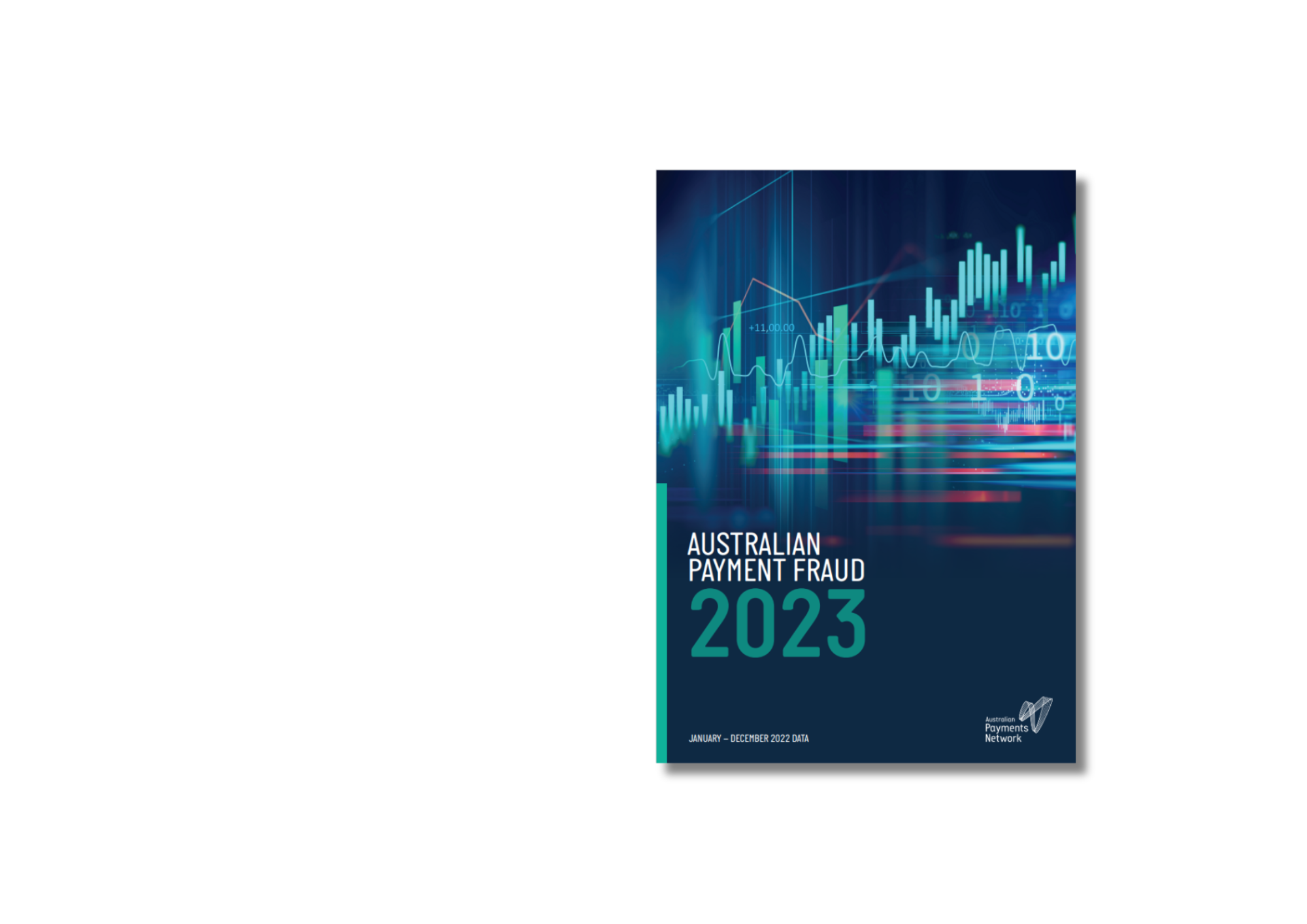
Fraud Statistics Jan 22 – Dec 22
According to the 2023 Australian Payment Fraud Report, in 2022, fraud on payment card transactions increased by 16.5% on the previous year to $577 million, in line with the increase in total spending on cards, which was up by 16% to $1 trillion over the same period. The rate of fraud on Australian card payments was 57.5 cents per $1,000 spent, up slightly from 57.3 cents in 2021.
The data indicates that the fraud rate has stabilised since the introduction of the industry’s card-not-present (CNP) Fraud Mitigation Framework (CNP Framework) in 2019, with the 2022 fraud rate remaining well below the fraud rate of 75.0 cents per $1,000 spent in 2017.
The CNP Framework requires merchants who consistently exceed agreed fraud threshold targets to strengthen customer authentication and apply other measures. The framework also encourages secure technologies such as real-time monitoring, machine learning and tokenisation.
AusPayNet sponsors the Economic Crime Forum (ECF), which brings together industry, law enforcement and government stakeholders to coordinate joint responses to economic crime, including scams, fraud, financial crime, and banking-related cyber incidents.
For more information on the data and payment fraud trends, read the 2023 Australian Payment Fraud Report below and the accompanying media release.
- Fraud on lost and stolen cards increased by 44.5% to $41.8 million
- Counterfeit/skimming fraud increased by 30% to $7.1 million
- Card-not-present (CNP) fraud increased by 14.4% to $516.8 million
- Cheque fraud decreased by 24% to $2.4 million
Source auspaynet.com.au

A Strategic Plan for Australia’s Payments System
The Government is releasing its Strategic Plan for the future of Australia’s payments system which sets out its policy objectives and priorities for the payments system.
The Strategic Plan was developed through a consultation process in collaboration with regulators, industry, consumer and business representatives.
The Strategic Plan provides businesses with certainty and clarity on the Government’s approach to important issues in the payments system, allowing businesses to invest with certainty and innovate. The Strategic Plan also outlines the Government’s commitment to ensuring that Australia’s payments system is safe, affordable, can be trusted and will remain readily accessible.
The Strategic Plan will be reviewed on an 18 month review cycle. This will allow the Government to report on its progress against its objectives and priorities, and ensure the Strategic Plan is responsive to advances in technology, competition and changes in consumer demand.
Source: treasury.gov.au/

For Australia’s financial sector, digital trust is the new currency
As adoption of banking apps grows, so does pressure to increase the range of capabilities the apps support, which has security ramifications.
Mobile app-based banking continues to find favour with Australians: more than two-thirds now use a mobile banking app or smartphone to do their banking, and it offers the highest customer satisfaction rating of any banking channel, averaging an 89.4% rating by customers of the ‘Big Four’.
As digital and self-service have been embraced by consumers, particularly in the form of increased use of apps, there’s inevitably pressure to build on that foundation.
A review of the apps of the five major Australian banks mid last year found customers wanted to see more capabilities and functionality added to the apps, particularly around money movement and management to improve financial wellbeing.
Some of these capabilities are being added in via third-party developed plugins created by fintechs, while other banks and credit unions are seeking to code these capabilities and features directly into the apps themselves.
Whichever app expansion strategy is pursued, a key concern will be that the additional functionality brings with it additional security risks. The larger the range of functions that the app can perform, the greater the amount of data it is likely to be handling.
All of these functions combine to create a broad potential attack surface for threat actors, who may view an ever-expanding banking app as a target that continues to increase in value.
Good security provides the confidence to expand apps
In a recent Deloitte survey, building digital trust was rated as the most important business strategy for success by financial institutions in the Asia-Pacific.
One of the top five benefits that cybersecurity investments had in this area was providing “confidence to try new things”, the survey found.
This means that at least in some banks, there’s a direct link between security and app capability growth; if a bank or credit union lacks confidence in their setup, they are less likely to try new things that could increase their security risk or exposure.
Banks and credit unions alike are acutely aware of their critical infrastructure role in Australia, and of the impact that a breach could have on customer confidence and goodwill. The critical nature of banking apps is often on display if they suffer downtime or degraded performance. Customer sentiment can turn quickly if they suddenly cannot perform critical tasks such as contactless payments at a supermarket register. And to be clear: these incidents aren’t often security-related. A security-related impact could prove catastrophic, particularly from an erosion of digital trust perspective, let alone what exposures individual customers could have.
Fortunately, credit unions and banking institutions tend to take a very proactive, best-practice approach to cybersecurity, and this extends to the oversight of their apps.
Many, for example, have focused on upskilling the defensive capabilities of their development teams. Without this education and verification, a lack of expertise may lead to teams taking shortcuts and/or lapsing into human errors, which could trigger configuration issues and code-level vulnerabilities.
Importantly for banks, these vulnerabilities could raise risk thresholds to a point that’s incompatible with, or in breach of, their regulatory requirements. Stringent regulations – including the Payment Card Industry Data Security Standard (PCI-DSS), the EU’s General Data Protection Regulation (GDPR) and additional global and national initiatives exist to address issues such as insecure data storage, insufficient authentication/authorisation, poor code quality and code tampering.
These standards create and drive vigilance among risk teams. In their pursuit of app expansion and increased customer satisfaction scores, it is important that developers or customer experience teams do not do anything that would undermine this vigilance and risk position.
Growing role-based security upskilling and awareness
To lay the foundations to proceed with banking app expansion with confidence, a holistic, people-driven security program is beneficial for creating the right mindset and foundational skills base.
A program that takes a dynamic approach based upon real-life threat management scenarios – as opposed to a static learning approach – will gain the most traction quickly. This can include the leveraging of motivational tools, such as rewards for successful “wins” and skills acquired.
Security learning pathways should also be available to everyone with a stake in the bank’s customer success. Developers are just one part of the ecosystem. Other parts of the organisation such as application security (AppSec) professionals and senior management also have key stakes in securing digital experiences and building digital trust. Executives, in particular, need to understand that security is not a “set it and forget it” discipline. A combination of tools and training is the most effective way to maintain the currency of security knowledge and best practices.
A positive security program focused on role-based education and awareness can lead to increased security engagement across the entire organisation, establishing the bank as “security-first.” From that position, unconstrained innovation can safely follow.
Written by Pieter Danhieux, CEO and Co-founder, Secure Code Warrior. Source: australianfintech.com.au

Anti-Scam Centre launches first ‘fusion cell’
The new National Anti-Scam Centre has launched its first so-called “fusion cell”, pulling together experts from regulators and industry to work on identifying ways of disrupting investment scams.
The Australian Competition and Consumer Commission, which operates the centre, announced yesterday that representatives from the ACCC, ASIC, banks, telcos and digital platforms will work on the project.
Fusion cells are “time-limited taskforces designed to bring together expertise from government and the private sector to address specific, urgent problems”.
The investment scam fusion cell will operate for six months and will target a number of goals: removing scam websites from the internet, stopping scammers reaching potential victims, sharing information about investment scams to assist the private sector to take disruptive activity; providing information to the public; and gathering intelligence to refer to law enforcement.
The ACCC said it will coordinate a series of these groups, with different participants, to target different types of scams.
The government announced in the May budget that it would provide A$58 million of funding for the centre over three years. Banks are expected to play a significant role in the centre’s work.
ACCC deputy chair Catriona Lowe said: “We’ll be using this funding to build the technology needed to support high-frequency data sharing with a range of agencies, law enforcement and the private sector.”
The funding was part of a package of measures announced in the budget, aimed at combatting scams and cyber crime. ASIC was allocated funding to allow it to identify and take down phishing websites and other sites that promote investment scams.
The Australian Communications and Media Authority was allocated funding to establish and enforce an SMS sender ID registry, aimed at impeding scammers seeking to spoof industry and government names in message headers.
Lowe said the Anti-Scam Centre will work with ASIC as it develops its scam website takedown service and support ACMA as it sets up the SMS sender ID registry.
Source: Banking Day, July 4, 2023.

From days to minutes: Payment services provider Indue accelerates its ability to innovate using Azure
Indue has been a significant player in Australia’s payments sector for more than 50 years. The payments technology provider is an Authorised Deposit Taking institution who specialises in helping organisations of all types adapt to and benefit from the latest innovations in payments technology.
Through its solutions – which encompasses everything from card management and mobile payments to direct entry transactions and real-time fraud detection – Indue aims to eliminate the need for multiple third-party engagements and streamline the payment system implementation process.
Indue is a founding member of Australia’s New Payments Platform (NPP), launched in February 2018 to modernise the nation’s payment infrastructure. The platform enables faster, more flexible and data-rich transactions to meet the evolving needs of Australian consumers, businesses and financial institutions.
Keith Bromwich, Head of Architecture at Indue, says Indue has helped clients adopt the NPP since its inception.

“Our role is to allow tier 2 and 3 financial institutions such as mutuals, regional banks and BAAS providers to access the NPP via our own platform,” he explains.
In June 2023, the NPP introduced PayTo, a new digital way for merchants and businesses to initiate real-time payments from their customers’ bank accounts. PayTo solves many existing challenges with direct debit payments, including processing delays, limited transaction information, and a lack of control for consumers and businesses over payments.
To ensure it could help clients adopt the new payment method, Indue embarked on an ambitious project in March 2022 to transform its technology infrastructure – largely made up of on-premise data centres – and adopt a more cloud-native approach.

In May 2022, Indue engaged Microsoft partner Arinco to help it develop enterprise-scale landing zones and a robust application programming interface (API) platform in Azure.
“The people we worked with at Arinco were absolute knowledge leaders,” says Bromwich. “They helped us make the right decisions by providing the pros and cons.”
Arinco used a flexible delivery approach to facilitate development timelines, which saw the first application landing zones for PayTo being implemented by early July 2022. This enabled Indue’s developers to build new capabilities for testing by October 2022.
As this was Indue’s first major deployment of modern web APIs in Azure, Arinco supported and educated Indue’s developers and engineers by leveraging its partnership with Microsoft.
“Firstly, we embedded consultants within Indue’s development teams, focusing on accelerating outcomes and providing best practice guidance for topics such as .NET development, Azure API deployment and security,” says James Westall, Account Executive at Arinco.
“Secondly, our consultants worked with Indue’s platform engineers, sharing our expertise with them as we developed code for each landing zone. This meant that at transition time, Indue engineers were starting from a solid knowledge base.
“Lastly, we partnered with Microsoft to deliver hands-on Azure Accelerate workshops. These covered key topics identified by Indue, enabling employees to get familiar with Azure in a safe environment with instructor guidance.”
The other challenge that Arinco helped Indue solve was the operational sign-off of its Azure capability.
“As an entity that’s regulated by the Australian Prudential Regulation Authority, Indue must be able to attest to the security, stability and robustness of its services,” explains Westall. “The deployment that we developed was designed to remain compliant using Azure and third-party security tools, including the capability to hold Payment Card Industry data.
“We also assisted Indue in developing several operational documents and procedures, ensuring key details about running solutions on Azure were available for external auditors.”
Arinco’s accelerated approach enabled Indue to launch its PayTo integration within the tight timeframe and begin onboarding clients in June 2023.
Enhancing innovation in the cloud
While Indue is still in the early stages of its cloud journey, its event-driven architecture in Azure is already delivering benefits. These include increased flexibility and scalability, which enable Indue’s developers and engineers to deploy any project – not just PayTo – in the cloud much faster and move from business idea to development workload in minutes or hours rather than days.

“The innovation piece is a key focus for Indue and its customers,” says Ryan Spain, Chief Information Officer at Indue. “Leveraging cloud-based technologies like Azure gives us access to a much wider variety of innovative capabilities in a fraction of the time compared to on-premise, and enhances the products and services we can offer.”
Indue’s move to the cloud has also helped them simplify its technology stack and reduce operational costs. Transitioning its Corporate Services (Virtual Desktop, remote access, and Office environment) to the Azure Virtual Desktop capability which operates within the enterprise-scale landing zone structure.
Now, key personnel can focus more on value-adding tasks rather than maintaining the performance and security of Indue’s hardware and software.
“We don’t have to worry about data centre connectivity or patching. All of that low-level maintenance is done by Microsoft,” says Bromwich.
Indue plans to grow its cloud footprint in Azure by kicking off two other major projects in 2023. One will focus on implementing a big data lake that leverages Microsoft’s advanced analytics capabilities. The other project will focus on migrating Indue’s on-premise Microsoft Dynamics 365 platform to Azure. Both projects will further enhance Indues’ ability to deliver innovative payment solutions and a better customer experience, according to Spain.
“This is a strategic partnership with Microsoft,” he says. “They’ve been on the journey with us from the start, and we really appreciate the assistance and guidance they’ve provided. The partnership has been a key enabler for facilitating both the PayTo integration and our broader cloud strategy.”
Source: Microsoft News 30 June 2023
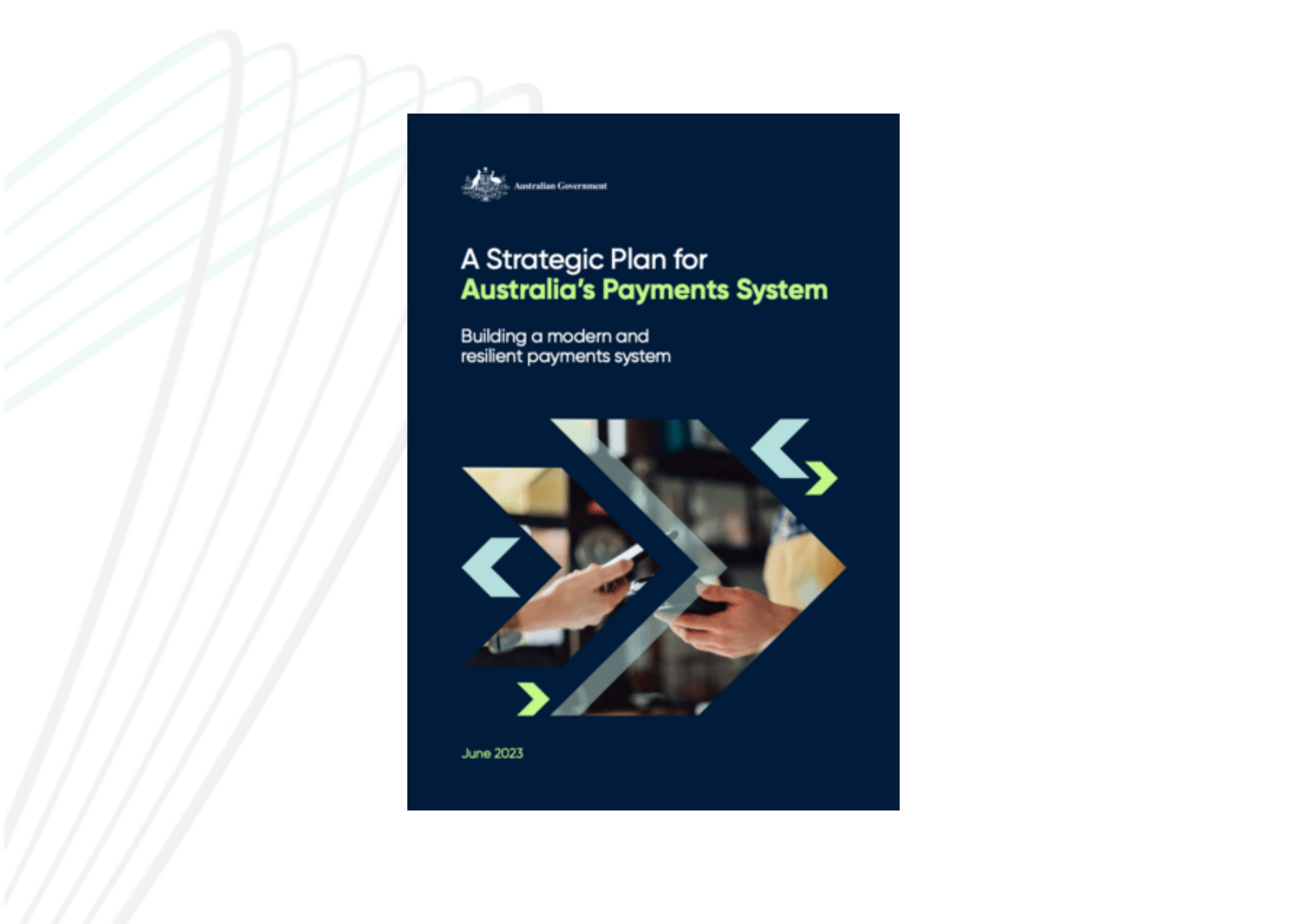
AusPayNet’s Response to Government’s Announcement on Modernising Australia’s Payments System
Government’s Strategic Plan for Payments has been much anticipated since its consultation late last year. Similarly, it was excellent to see today’s announcements of the consultations on the Payment Systems (Regulation) Act and on the new payments licensing regime. Why? Well, collectively they will, in two ways, ensure that Australia’s payments system is fit for the future by:
- enabling the prioritisation of payments initiatives and investments; and
modernising payments regulation to ensure a “same risk, same rules” approach. - Together, that will protect and benefit end-users and support innovation. The future of payments starts here and it’s an exciting one.
The Strategic Plan for Payments
A comprehensive plan for the future of payments has been attempted before: by the RBA in 2012 and more recently by AusPayNet. However, Government’s approach adds to those prior attempts by basing the prioritisation of payments initiatives and investments on Government’s policy objectives, and by pledging to review that prioritisation every 18 months.
The Plan also helpfully sets out a path for six key elements of the payments system on which AusPayNet is already engaged: scams; cybersecurity; the future of cheques; the future of BECS; access to cash; and cross-border payments.
Scams
As I have said in other forums, we have a once in a generation obligation to solve for scams, which currently affect far too many Australians. The plan reiterates Government’s prioritisation of the establishing of the National Anti-Scam Centre, and its intent to developing new cross-sectoral, industry anti-scam codes. AusPayNet will work with Government and relevant regulators to leverage AusPayNet’s Economic Crime Forum and understand how AusPayNet can best contribute to the anti-scam codes. Together we can make Australia hostile to scams.
Cybersecurity
In the cybersecurity section of the Plan, the Government calls for the card payments industry to begin migration to the Advanced Encryption Standard (AES) in 2025. This is important given, as the plan states, “the requirement for continued uplift in system-wide security standards and practices relating to the security standards and encryption methods for card payment systems.” That uplift requires Australia’s (and the world’s) card payments to migrate to post-quantum computer ready encryption (i.e. AES).
This process will involve migrating almost one million POS terminals, around 25,000 ATMs, all hardware security modules and all card networks in between. As the Plan notes, AusPayNet is currently leading a program of work for this migration, with a view to commencing the actual migration from 2025.
The Future of Cheques
On the future of cheques, the Plan is helpful in two respects.
Firstly, it specifies sunset dates for the Federal Government’s own use of cheques and for the cheques system itself. End-dates of 2028 for the former and 2030 for the latter may seem like long timeframes, but AusPayNet will work with the Federal Government on this, as well as with State Governments and other users. The proposed consultation paper on the future of cheque use in Australia and the support required to retire the cheques system – together with the regular review of the Plan – will be important in understanding whether this date can be brought forward. In considering this question, it is worth noting that both New Zealand and South Africa closed their cheques systems within a year.
Secondly, the Plan proposes reviewing the ongoing role of the Cheques Act. That legislation dates back to 1986 and is unique in legislating requirements around a specific payment type. No other payment method – cash, card, account-to-account – has specific legislation. Changing the Cheques Act would facilitate participants in the payments system – including end-users – proactively moving away from cheques where digital alternatives exist.
The future of BECS
On the future of BECS, the Plan supports the work that AusPayNet is already doing on an industry-led transition away from BECS. The Plan also spells out Government’s role in leading the way in this transition by moving its payments to alternative payment rails.
Access to Cash
The Plan notes that Government will support Australians having continued access to cash. This is important given cash remains a preferred payment method for some Australians. There are three factors which need to be monitored in this regard. The first is access to cash itself, monitored through the RBA’s periodic analysis. The second is acceptance of cash by merchants, which AusPayNet surveys annually. And the third is the efficiency of cash distribution, which the Plan notes is a focus for the RBA, supported by AusPayNet.
Cross-Border Payments
On cross-border payments, the Plan includes two aspects that I would like to call out.
The first is the Plan’s requirement that Australia’s high value payments (through AusPayNet’s High Value Clearing System and the RBA’s Real-Time Gross Settlement System) fully migrate to the ISO 20022 standard by the end of 2025. This aligns with AusPayNet’s existing plan under its program management of the ISO 20022 migration, whereby the current coexistence period for domestic payments ends in November 2024, ahead of the equivalent for cross-border payments in November 2025. It is also important in realising the benefits of the richer data associated with ISO 20022, particularly in terms of anti-money laundering (AML), know your customer (KYC), sanctions screening and straight-through-processing by both financial institutions and end-users.
Secondly, the Plan notes the Financial Stability Board’s roadmap – endorsed by the G20 – for making cross-border payments cheaper, faster, more transparent, and more accessible. AusPayNet’s Cross-Border Payments Advisory Council, which includes Treasury and the RBA, is coordinating Australia’s response to that roadmap and its targets.
The Payment Systems (Regulation) Act
Much like the Cheques Act, the Payment Systems (Regulation) Act (PSRA) is a product of its time (1998). The regulation of payment systems and their participants was simpler in the 1990s for two reasons:
- by regulating deposits (money-at-rest), payments (money-at-movement) were also regulated, because only Authorised Deposit-taking Institutions (ADIs) processed payments
- payment systems provided all payments services. Fast forward to 2023, and many payments are processed by non-ADI participants, and payments services are often provided using, rather than by, payment systems (think buy now, pay later, for example, which uses the card or account-to-account payments).
So, the review of the PSRA is important in enabling the RBA to regulate new forms of payment systems and services, as well as all their participants. The backstop will be a Ministerial designation power to be used in a situation of national interest. Together with a modern approach on payments licensing (see below), these measures will create a level playing field which will protect consumers and support innovation.
Payments Licensing
Treasury’s proposed approach on payments licensing equates to best practice globally. Regulation is now increasingly activity/function based. It is therefore eminently sensible for Treasury’s first consultation to focus on ascertaining the functions that should be subject to a payments license.
Essentially, if you are adding risk to the ecosystem by providing a payments function, you should be licensed and subject to the same regulation and standards as any other participant providing the same function. Simply put, “same risk, same rules”. This will protect end-users and it will support innovation.
It will also promote competition. Evidence from other jurisdictions such as the UK, Europe, Singapore that have payments (or ‘e-money’) licenses shows that innovators are supported by the wider ecosystem because they are licensed, in a way that they would not be supported if they were unregulated.
The first consultation on licensing is exactly that. As it suggests, further consultation will be required on the licensing regime itself, once the functions that are being regulated have been established. And as part of that further work, payments standards-setting bodies will need to be authorised, with their standards then applying to all licensees to ensure interoperability, consumer protection, security, and accessibility of and to the payments system.
To support that aspect of the licensing regime – which will be covered in a future consultation – AusPayNet is currently undertaking a program of work to become an authorised standards-setting body, building on 30 years’ experience and expertise in developing industry standards to respond to emerging trends comprehensively and with agility. We look forward to working with the Treasurer, Treasury, the RBA and other regulators on fleshing out the future regulatory regime for payments.
By Andy White, CEO, AusPayNet – www.auspaynet.com.au

We’ve launched our PayTo service offering
Indue is excited to announce the official launch of its PayTo service offering, enabling financial institutions and payment service providers and platforms to drive payment innovation and improved customer experiences.
A development of Australian Payments Plus on it’s New Payments Platform (NPP), PayTo modernises the way bank accounts are used for payments, helping businesses and consumers thrive in the digital economy.
Indue CEO Derek Weatherley said the PayTo launch is a natural extension of Indue’s NPP capability, which has been helping Australia’s leading mutual and community banks take advantage of flexible, real-time payments with industry-leading financial crime support since 2018.
“At Indue, we are committed to investing in product technology advancements that support our client’s digital transformation, innovation, and competitiveness, exemplified now through PayTo,” Mr Weatherley said.
“We have a team of NPP experts that have already begun to connect partners to PayTo, delivering them a faster, simpler, and smarter real-time payment service.
“We are thrilled to be part of the PayTo revolution and, as always, are keen to help our current and future customers keep pace with the changing Australian payments landscape.
“PayTo will enable a superior payment experience by streamlining payments and improving efficiency and control for consumers and businesses. This is achieved by PayTo while at the same time reducing risks and modernising the way money moves.
“Ultimately, PayTo further enhances Indue’s digital banking offering, providing a state-of-the-art payment services experience for our customers.”
Indue can connect financial institutions, payment service providers and platforms to PayTo .
To learn more and get PayTo ready, click here.

Meet Head of Innovation – Jennifer Osborne
We sat down with our recently appointed Head of Innovation Jennifer Osborne for an insightful interview about her new role, Indue’s future, and the payments industry at large. Read what she had to say below.
WHY DO YOU THINK INDUE HAS INTRODUCED THIS ROLE?
Innovation is intrinsically linked to growth and business value, making it an essential ability amidst the disruption and change facing the payments sector today. To meet Indue’s core purpose of helping our customers drive their own competitive advantage, it’s essential we keep our product offering strong by staying on top of what’s in the pipeline. I believe Indue introduced this role as a way of continuing to meet our customer’s needs by bringing the wider community together to leverage knowledge and drive opportunity.
HOW HAS YOUR BACKGROUND PREPARED YOU FOR THIS ROLE?
I have worked across a variety of industries in my career, including financial services. That means I am coming to this role with an established understanding of the breadth and scale of the challenges that a lot of our customers face. From customer experience and operations to strategic portfolio delivery, I understand the banking lifecycle. I think my deep customer knowledge will set the tone for what I do in the innovation space at Indue. The customer always has and always will be at the core of our work.
WHAT IS YOUR VISION FOR THE ROLE?
As I mentioned, there is huge disruption and opportunity in our industry. My vision for the role is that we provide insights and guidance on evolving opportunities, driving a purposeful, customer-centric roadmap of innovative change through collaboration with our community.
SPEAKING OF OPPORTUNITY, WHAT DO YOU BELIEVE IS THE MOST NOTEABLE POSSIBILITY FOR INNOVATION IN THE PAYMENTS, FINANCIAL SERVICES, AND BANKING SECTOR?
There has been, and continues to be, a strong emphasis on digitisation and operational efficiencies. People these days are time poor and generally more impatient, meaning we have the opportunity to streamline and improve customer experiences.
CONVERSLEY, WHAT DO YOU THINK THE MOST SIGNIFICANT CHALLENGES TO INNOVATION IN THIS SECTOR ARE?
For the financial services and payments sector particularly, I think we’re seeing a significant change of pace and increasing cost of doing business. Customers are more informed now, demanding a different proposition. Data and security are front of mind, posing the difficulty of digitising services while keeping them exceptionally safe. At the same time, services need to remain easy to understand and adopt, as well as cost-efficient. It’s all a balancing act.
WHAT ARE THE THREE MAIN AREAS YOU INTEND TO FOCUS ON IN THIS ROLE OVER THE NEXT 12 MONTHS?
I think my focus areas can be summarised as three questions:
- What is the market doing?
- What are our customers trying to achieve?
- What opportunities exist to help them succeed?
Essentially, I hope to provide market insights and thought leadership at an aggregate level, understanding our customers challenges and delivering on the opportunities out there.
HOW DO YOU FORSEE INNOVATION ALIGING WITH AND CONTRIBUTING TO POSITVE SOCIAL AND ENVIRONMENTAL IMPACTS AT INDUE?
Change is inevitable, we just need to ensure it’s for the good of our people and our planet. Innovation and disruption are therefore required. I see Indue’s work aligning with that – we’re very conscious of and committed to ESG. We serve our diverse customers and communities through a variety of sustainable and social innovations, for example through our environmentally friendly bank cards and our accessibility offerings for visually impaired end-users.
WHERE DO YOU HOPE TO SEE INDUE IN 5 YEARS TIME?
There is so much knowledge and passion across us and our customers that the future is extremely exciting. We’re keen to grow and consolidate loyal partnerships with our customers, cultivating a highly connected community who maximise and optimise, together. Through our focus on and commitment to our customer’s purpose, I hope we continue to prove ourselves as the provider of choice.
DESCRIBE WHAT INNOVATION MEANS TO YOU.
The age-old question… innovation means different things to different people! For me, it’s about bringing renewed focus to optimise strategies. That might be through small incremental changes or more disruptive means, but either way it will deliver value in a customer-centric and sustainable way.

The Mutual Bank Partnership
For 135 years, The Mutual Bank has met the financial needs of the Maitland, Newcastle, and Hunter communities in New South Wales, serving and supporting them in building a sustainable future.
Since March 2022, Indue has provided The Mutual Bank and its members with a significantly expanded payment services suite, including Direct Entry, BPAY, NPP, Financial Crimes, Anti-money laundering, Card Services, High Value Payments, and an expansion of its Digital Payments offering.
The Mutual Bank CEO Geoff Seccombe said the partnership continues to be driven by a strong alignment in company values, product offerings, and payment needs.
“Our relationship with Indue began when we needed assistance in becoming the first local mutual bank issuer of Apple Pay in the region. But it is founded upon much more than a vested interest in innovative payments technology,” Mr Seccombe said.
“Indue earned our trust, respect, and business by delivering on its payment services promise, and it has kept it by continuing to share our community-first focus and partnership culture.
“I commend Indue for its support of the local communities in which we operate, and its unwavering commitment to environmental, social, and cultural initiatives,” Mr Seccombe said.
Indue CEO Derek Weatherley said that alignment with our clients’ sustainability practices, community programs, and employee wellbeing are core to our values.
“The best partnerships are achieved when company culture and core values align, which is what we have experienced with The Mutual Bank,” Mr Weatherley said.
“We have an excellent understanding of The Mutual Bank’s priorities and their wider community goals in operating in a socially responsible manner, prioritising positive social impact and a genuine ‘one team’ support model with on-the-ground support.
“We look forward to continuing to work with The Mutual Bank and its community” Mr Weatherley said.
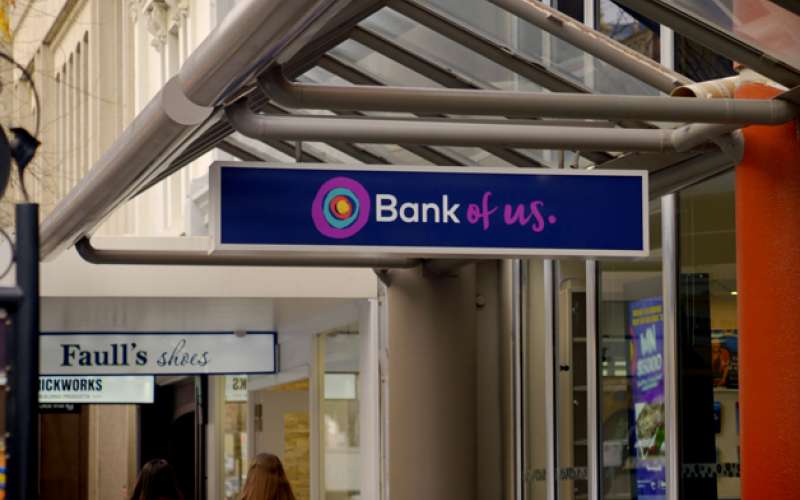
Orion protects Bank of us Customers
Tasmania’s Bank of us and its customers are reaping the significant fraud protection benefits of Indue’s Orion Financial Crimes Service, delivered as part of our exclusive full-service payments partnership.
As an agile solution that enables safer payments, ‘Orion’ offers real time, non-stop fraud detection, monitoring, and management through integrated AI machine learning.
Bank of us CEO, Paul Ranson said outsourcing payment services to Indue, including financial crime solutions and the provision of aggregated insights, predictability, and forewarning, has been of major benefit to the customer-owned bank.
“With Orion, more fraud cases are being detected and deterred before they hit accounts, drastically reducing our volume of disputes while simultaneously increasing our customer satisfaction and security,” Mr Ranson said.
“On the rare occasion fraud has transpired in the last 3 months since transitioning to a full-service partnership, Indue’s service has been incredible at enabling chargebacks to occur promptly, putting money back in our customers wallets faster.
“The necessity and truly incredible value of this service for Bank of us was illustrated when, on the first day of Orion’s operation at our bank, it saved just one of our customers $25,000.”
Indue CEO Derek Weatherley said the Orion service demonstrates industry-leading performance in financial crimes prevention, effectively reducing the burden on the non-major banks that we protect and serve, such as Bank of us.
“With more than 2.4 million accounts under management, Orion has access to a large pool of transactional data to detect trends, with rules tailored to meet the needs of individual organisations like Bank of us,” Mr Weatherley said.
“Our Australian-based team of fraud analysts do the heavy lifting, freeing up Bank of us to do the things they’re good at, like great banking products and services to Tasmanians, with enhanced peace of mind, knowing we’ve got them covered.
“For both Indue and Bank of us, who prioritise and care for customers, the reliable payments protection Orion provides is all that much more important.”
Beyond Orion, Indue’s range of services include the New Payments Platform, prepaid and gift card programs, mobile payments, the Nucleus Card Platform, and Payment and Bureau Services.
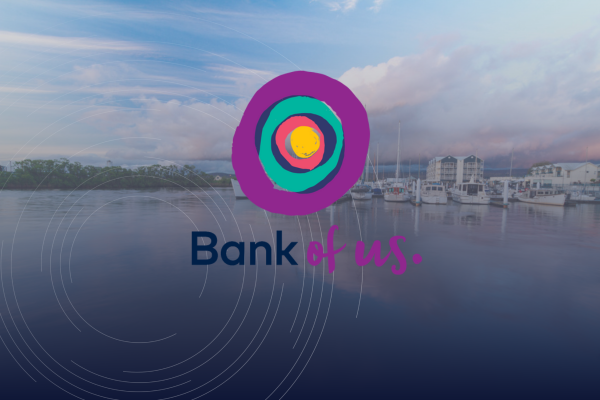
Bank of us upgrades fraud monitoring with Indue
As it targets August migration deadline.
Bank of us, a Tasmanian customer-owned institution, has signed Indue to upgrade its fraud monitoring, as it works through a broader payment migration project set for completion this August.
Bank of us has a retail presence in Tasmania and 33,000 customers.
The bank stated earlier this year it had invested in an upgrade to its fraud monitoring service, aimed at building greater protection for customer funds.
CEO Paul Ranson told iTnews the bank appointed Indue “as our exclusive full-service payments partner, which has included the adoption of Indue’s Orion financial crimes service.”
“The Orion financial crimes service monitors all card transactions in real-time, allowing for most fraudulent transactions to be detected and blocked before they hit our customer accounts,” Ranson said.
“The service will continue to be expanded to cover all other payment types from May,” he said, adding the financial crimes service is powered IBM’s safer payments platform.
He said since the upgrades, the bank has noted “a significant reduction in the number of fraudulent transactions affecting our customer accounts.”
Implementation of the financial crimes feature is part of a bigger project, kicked off last October, to migrate payment and settlement services over to Indue.
The project is expected to be completed by August 2023 and give customers access to more sophisticated end-to-end payment solutions.
Source: IT News, Apr 14, 2023:

AusPayNet Strategic Plan
12th April 2023
Current regulation is not fit for purpose due to the technological advancements and consumer behaviours which have led to emerging entrants disrupting the payments sector. To keep pace, promote smooth economic operations, and protect Australia’s position as a leader in the global marketplace, the Australian Government has set the regulatory wheels in motion.
In December 2022, Treasury released a consultation paper seeking input into the ‘Strategic Plan for the Payments System’. The purpose of this paper is to pursue feedback into the Plan for the payments system to ensure that Australians can continue to transact in a safe, secure, and efficient environment.
The Plan will be a comprehensive, long-term strategy that provides clarity on the Government’s policy objectives and priorities for the payments system. It will support a shared vision for the payments system and facilitate coordinated decision-making between the government, regulators, industry, and consumer and business representatives.
At Indue, we align with the sentiment and suggestions put forward by the Australian Payments Network CEO Andy White in his recent commentary. The Plan’s objective is commendable and necessary, however, its effectiveness is contingent upon strategic and impactful execution.
Mr White advised that Treasury’s priority for 2023 should be “ensuring the regulatory framework is fit-for-purpose and promotes competition” by progressing leadership, regulation, and licensing.
It is through this fit-for-purpose and fit-for-future framework that the industry will find clarity around how to compliantly operate more efficient, innovative, accessible, and trustworthy modern payments systems.
We eagerly await the release of the inaugural Plan as an opportunity to enhance the leading payments solutions we provide to mutuals, banks, corporates, governments, payment providers and other non-bank financial institutions.

Indue Upgrades High Value Payment Processing Capability
21st March, 2023
Indue is excited to welcome in the next era of high value payments processing, as the industry reached a significant milestone this week with a major multi-year upgrade to ISO20022 messaging standards, to future-proof the payments system and enable domestic and international payment system interoperability and data-rich messaging.
In conjunction with the rollout of this major industry upgrade, Indue has enhanced its high value payment processing technologies to maximise the operational efficiencies and security posture of the system.
Indue Chief Executive Officer Derek Weatherley said these new messaging standards will bring many benefits for customers and their operational staff, such as improved financial crime monitoring, rich data and international harmonisation via the SWIFT network.
“We have kept clients front of mind while redeveloping our high-value payment processing capabilities to ensure they capitalise on the value of the technology,” Mr Weatherley said.
“Among many benefits, our clients will have access to streamlined end-to-end processing and full self-service capabilities through the online portal that enables real-time transaction tracking, approval and auditing.
“The upgrades also support API messaging for updates, notifications and other functions, automated approval processes, significantly lowering operating costs and risks, as well as modernising the overall security posture, including multi factor authentication.
“Our processing capabilities align with the ISO20022 upgrades to ensure our clients can enjoy greater operational efficiencies, and we look forward to driving faster payment experiences with the roll-out of these technologies.”
The upgrade was launched with Auswide Bank in March 2023, with an iterative roll-out across our full client base underway.

Auswide Bank Partnership
21st March, 2023
Following the successful launch of a New Payments Platform (NPP) for Auswide Bank in 2022, Indue and Auswide have been busy behind the scenes to successfully implement Direct Entry, BPAY, Cards as well as Anti-Money Laundering (AML) and High Value payment capabilities.
Throughout the past year, Indue has enabled digital transformation, state-of-the-art customer experiences, and improved business outcomes for Auswide Bank, enabling them to best help achieve their goals of helping Australians achieve home ownership, create wealth, and access banking and financial services.
Auswide Bank Managing Director and CEO Martin Barrett said that Indue’s similar commitment to prioritising customers has assisted in delivering outstanding services to Auswide Bank communities and customers across the country.
“Indue’s full suite of end-to-end payment solutions are a key component of transforming our business with technology and providing digital payment choices for our customers, improving their experience and delivering stronger business outcomes,” Mr Barrett said.
“Efficiencies that have flowed through our operations as a direct result of Indue’s integrated service stack have exceeded all expectations – it is fantastic to have a partner with modern technology that does the heavy lifting for us”.
Indue CEO Derek Weatherley said “I am very pleased that this transition has closed so quickly and cleanly and my team remains energised to support Auswide Bank in bringing these services to their customers.”
“Since Indue’s appointment as Auswide Bank’s exclusive full-service payments partner earlier, we have expedited the implementation of NPP, Direct Entry, BPAY, Cards, AML and High Value payments” Mr Weatherley said.
“As a founding member of the NPP, our partnership with Auswide Bank enables the organisation and their customers to securely send and receive payments with other financial institutions in near real-time.
“Complementary to this, Direct Entry and BPAY provide cost-effective, convenient ways for customers to transfer funds between bank accounts and pay bills. The Indue and Auswide Bank relationship has been further enhanced by simple and adaptable payment card and mobile payment services, including switching and settlement, which provide maximum flexibility for Auswide Bank and their customers.
“The efficient and seamless implementation of these offerings demonstrates Indue’s industry-leading knowledge and ability to deliver cutting-edge integrated solutions to our customers.
“We are proud of the significant operational efficiencies that Indue’s integrated payment systems provide to Auswide Bank freeing staff up to focus on serving their customers and community. We very much look forward to continuing our successful partnership.”

Qudos Bank selects Indue as their principal payments partner
We are delighted to confirm that Qudos Bank has reappointed Indue as their exclusive full-service payments partner.
Qudos Bank is one of Australia’s largest customer-owned banks with branches in Sydney, Melbourne and Brisbane and more than $5 billion in assets, offering a full range of financial products and services, including home loans, personal loans, transaction, and savings accounts, super and investing, and insurance.
Over recent years Qudos Bank has been on a digital transformation journey and provides a host of exceptional digital banking platforms and payments services. Qudos Bank CEO Michael Anastasi said the relationship renewal reaffirmed the strength and value of the long-term partnership with Indue to provide end-to-end payment services.
“We have a long term partnership with Indue and renewing the relationship supports continuing development in our innovation around digital banking offering and providing a state-of-the-art payment services experience for our customers, underpinned by market leading security in payments for our customers” Mr Anastasi said.
“Importantly, Indue’s customer-focussed culture is outstanding across the organisation and directly aligns to our central focus as a customer-owned bank on delivering banking services in the interests of our customers, providing synergies that will help Qudos remain at the forefront of excellent in customer service standards for our customers across Australia.”
Indue CEO Derek Weatherley said the renewal of the partnership will enable Qudos Bank to provide to their customers a comprehensive suite of end-to-end payment services coupled with market leading payment security. Qudos has been remarkably successful through a laser focus on customer advocacy and being easy to do business with – the partnership with Indue ensures that excellence in customer outcomes remains at the forefront of their business operations.
“Indue remains heavily invested in advancements in our product technology capability, reinvesting our profits into research and development via our Innovation Hub and the various working groups it supports and continuing to support the digital transition of our clients,” Mr Weatherley said.
“We couldn’t be more pleased Qudos Bank has chosen to extend our long-term partnership and we are looking forward to working together to build out future innovation pathways for real time, data rich, frictionless payment choices for customers. Qudos has been a great supporter of their community and we look forward to working closely with Qudos this year on supporting and driving community focused outcomes important to their organisation.
“The payment products and services suite provided to Qudos Bank by Indue will include NPP, PayID & Pay To, mobile payments, Orion Financial Crimes, Cards, Direct Entry, and BPAY services.”
-ENDS-

id8 Tour | Money 20/20 Diversity & Culture
The Money20/20 conference has given us the opportunity to hear from a wide range of world-class speakers, including global entrepreneurs and even a Grand Slam tennis champion, who have all touched on the intrinsic link between organisational culture, diversity, and performance.
The companies that are best positioned to establish a competitive edge are the ones that embrace a culture of prioritising diversity of people and thought, and equally, this diversity is the best form of due diligence when developing new business models or entering new markets.
In a broad ranging discussion about fintech and start-ups featuring Serena Williams, we heard about new business models and solutions that are focused on solving problems for customers, leveraging the power of partnerships, and driving a competitive edge through organisational culture embracing diversity.
We were also fortunate to hear from several women who have founded new payment fintech companies in the past two years, including Kontempo – a Mexico-based bank focused on providing credit to small businesses, Lucy – which is providing funding for female entrepreneurs, and the competitive edge through embracing diversity was a recurring theme.
The theme of modernising core was prevalent, ensuring foundations are built on future proofed architecture. Another common theme in this vein was ‘build core, partner everything else’. This includes leveraging partnerships for insightful and innovative product design, and the theme of diversity featured again through partnerships that support organisational diversity, with a US Bank focussing a commitment to diversity though partnering with fintechs who are focused on minority/women only businesses.

Indue Limited appoints new Chief Commercial Officer
MEDIA RELEASE
8th November 2021
LEADING payments and technology services company Indue Limited has announced Fred Perry as Chief Commercial Officer effective January 2022.
Mr Perry is set to drive the company’s commercial business with a focus on accelerating growth, product optimisation and driving competitive advantage for our clients in all their payments needs.
Indue Chief Executive, Derek Weatherley, said he was excited for Indue’s future under the commercial leadership of Mr Perry.
“We are thrilled to appoint Mr Perry as Chief Commercial Officer and are confident the business will thrive under his leadership given his past performance in driving significant change for organisations and his solid background in delivering results for the financial sector,” Mr Weatherley said.
Mr Perry has 24 years’ experience optimising client value in industries including business and wholesale banking, financial services and venture capital. He joins Indue from RACQ where he held the role of General Manager of Strategic Delivery and Enablement, leading the Transformation Office, and the role of RACQ Bank Chief Operations Officer where he built and fostered an environment of collaborative relationships, innovation, integrity and dedication to excellence.
Prior to this Mr Perry worked in senior roles with ME Bank, Angus Polar, Centrepoint Alliance Ltd and spent more than 11 years at National Australia Bank in the roles of Head of Sales Growth and
Optimisation, Head of Transformation and Head of Analytics.
He holds a Master of Business Administration from University of Newcastle, a Post Graduate Diploma of Finance and a Diploma of Marketing Management.

Orion Financial Crimes – Case Study
Fighting financial crime with award-winning technology
Orion Financial Crimes – Case Study
The growing sophistication of financial crime remains an ever-present threat, particularly as we move to a predominantly cashless society, and engage with more ways to pay. Left exposed or unprotected, fraudsters can swiftly take their toll on financial institutions’ bottom line and reputations.
To stay on top of innovative financial crime perpetrators, financial institutions must have the best people, processes and technology in place to efficiently detect and monitor fraudulent behaviour. This valuable mix can sometimes take years to develop without the support of specialist providers.
Financial institutions are often faced with having to run multiple, costly technology solutions that tackle independent payment channels. This can lead to siloed people and processes supporting these multiple solutions. Managing multiple solutions also runs the risk of delaying the detection of fraud and potentially missing a fraud event entirely, exposing vulnerabilities for fraudsters to exploit.
These were just some of the challenges Indue’s client — a well-known Australian bank — faced while attempting to protect its 400,000-plus customer base prior to engaging Indue’s financial crimes experts.
Results we achieved for a leading Australian bank
-
50% cut in fraud losses in the first month
-
60% reduction in false-positive fraud results
-
400,000-plus customers better protected
Challenges
As a leading Australian bank, reliable fraud monitoring was essential to keep up with the fast, real-time transaction speeds of today’s payments networks. The bank was fighting fraudsters without the ability to decline in-flight transactions in real time, the outcome was fraudsters had the opportunity to achieve far greater attacks utilizing velocity and speed to their advantage.
The bank’s incumbent technology was also returning significant false-positive fraud results, thereby clouding analyst assessments and creating cost inefficiencies for operations. This enabled real fraud to hide behind genuine behaviour, which was often missed during assessments.
Critically, fraud was being monitored only during office hours by the client’s operations team. This often resulted in a backlog of events for next day review, while providing an opportunity for perpetrators to schedule attacks during out of hours and unmonitored periods.
How Indue helped: 5 key priorities
Shared vision: Indue’s financial crimes experts were able to see the bigger picture and work in partnership with the bank on their longer-term business planning goals and objectives, to provide a solution that could grow and adapt over time.
Partnership: The client was seeking a supplier who would take a true partnership approach. A partner who could work with them to co-create an integrated solution that could simplify the management of multiple payment channels and return better results than its existing provider.
Collaboration: A key success factor was the focus on collaboration between the client and Indue. The teams worked closely to ensure each other’s strengths were being leveraged, that the client was listened to and understood, that there was clarity on the problems that needed solving, and that there was alignment on identifying technical challenges and key performance outcomes.
Understanding: Built on years of experience, the Indue team understands that the closer you can work with a client’s team, the better the outcome. It was through establishing a close working relationship Indue was able to provide direction & guidance to help them decide how they wanted and needed to interact with the service. As the client was reshaping their own fraud management approach, Indue was able to provide guidance and counsel.
Feature Rich Service: The bank required a 24×7 alert triage service thereby providing round the clock monitoring and protection for their 400k+ customer base. Powered by award-winning IBM Safer Payments, the Indue solution was able to reduce the risks associated with the client’s multiple payment channels. Further, Indue’s investigation Case Management tool made an outsourced service much easier to manage back in the clients own shop. Finally, the Indue aggregation model was able to deliver insights from across a broad range of industry financial crime learnings, providing the client with greater visibility of the financial crime landscape.
“Financial crime is a unique, fast-paced and often highly complicated problem to solve. It requires people, process and technology working together harmoniously to achieve results.”
Dean Wyatt, Head of Financial Crimes, Indue
Results, return, future plans
Following the implementation of Orion Financial Crimes Solution, the bank saw immediate results with card fraud losses cut by 50% in the first month alone. More fraud was detected through less alerts and false-positives reduced by 60%.
Better outcomes overall were achieved in prevention and detection by addressing both fraud and scams, and significantly reducing chargebacks to customers.
The bank is now looking to add further payment channels to Indue’s solution, taking full advantage of the single-view capability of Orion Financial Crimes and IBM Safer Payments.
Critically, the bank can now focus its attention on higher value programs to drive its customer-first value proposition while working with Indue to protect its customers.
Orion Financial Crimes
Orion Financial Crime’s ability to inherently integrate people, processes and technology provides a cutting-edge solution with real-time capability, integrating artificial intelligence and machine learning to deliver a 24/7 fraud monitoring solution.
Launched in 2003, Orion Financial Crimes went live with IBM Safer Payments in 2018, providing real-time fraud & scam detection and management, anti-money laundering and counter-terrorism financing monitoring, sanctions checking across Australia and New Zealand.
To find out how you can tap in to Indue’s team of experts & specialists in fraud management contact us today.

